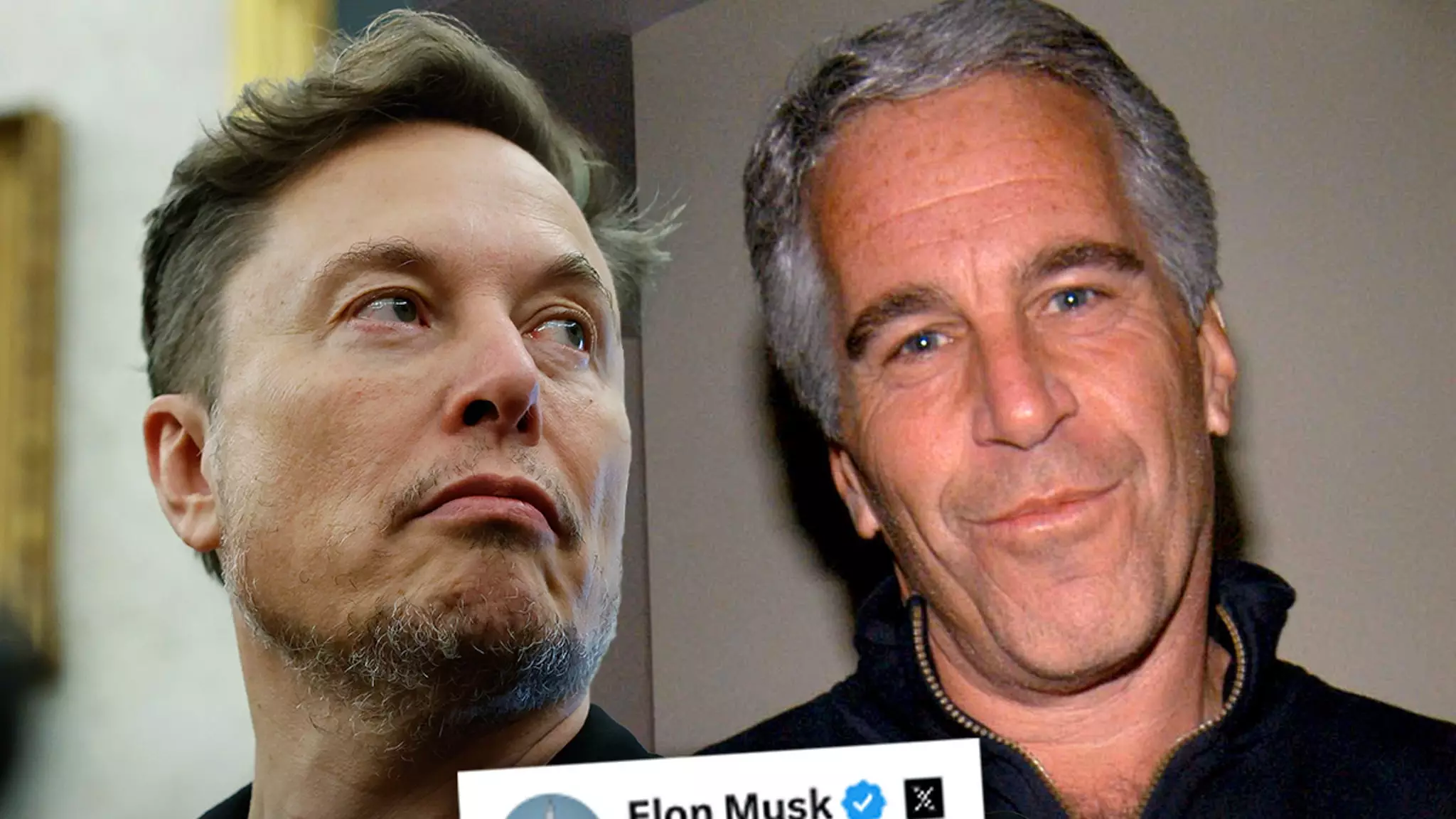In a landscape saturated with official statements and predetermined narratives, few figures have the audacity to challenge the status quo with such fervor as Elon Musk. Known predominantly for revolutionizing industries and pushing technological boundaries, Musk has increasingly inserted himself into complex socio-political debates—most notably, the Jeffrey Epstein case. His recent public assertions reveal not just a desire to question, but a profound skepticism about the reliability and transparency of governmental institutions. By doing so, Musk assumes a role that transcends business, positioning himself as an advocate of mistrust in powerful authorities—an act that resonates deeply in a world where information is often curated and manipulated.
Musk’s approach signals a shift in how influential individuals can sway public opinion; his online presence exemplifies the disruptive power of social media in challenging official narratives. When he openly disputes the FBI and DOJ’s conclusions about Epstein’s death, he is effectively casting doubt on the entire process. It is not merely criticism, but a strategic undermining of authoritative authority—a stance that has both intensified and polarized discussions around Epstein’s case. Musk’s skepticism isn’t rooted in a mere contrarian attitude; it’s seeded in a suspicion that official reports are often incomplete, redacted, or outright fabricated, especially when dealing with high-profile figures tied to elite networks.
The Impact of Musk’s Public Doubts on Public Discourse
The significance of Musk’s comments lies in their potential to ignite a broader wave of inquiry and distrust. When the world’s richest man implies that official investigations into Epstein are insufficient or deliberately misleading, he taps into an existing vein of conspiracy theories that has persisted for years. His tweets, though often dismissed as provocative or attention-seeking, actually serve as catalysts for deeper scrutiny—whether justified or not. This act of questioning disrupts the complacency of accepted narratives and compels the public to consider alternative explanations, however speculative they may be.
Furthermore, Musk’s influence as a tech billionaire lends credence—at least in the eyes of some—to the notion that the truth about Epstein’s death, his connections, or potential blackmail networks might be intentionally concealed. His insinuations about Epstein’s flight logs implicate him in a far-reaching conspiracy, challenging the assumption that the official story is complete and truthful. In a society where trust in institutions is increasingly fragile, Musk’s vocal skepticism champions the idea that transparency is often sacrificed for political or financial expediency. While some critics view such assertions as reckless or conspiratorial, there’s an undeniable power in elevating doubts to a public platform, forcing every citizen to confront the uncomfortable possibility of deception.
The Perils and Power of Disinformation in the Digital Age
However, this tendency to publicly dispute official narratives carries inherent risks. Elon Musk’s boldness often borders on the reckless, spanning from accidental misstatements to deliberate provocations. In the complex web of online discourse, his statements may inspire further speculation, misinformation, or conspiracy theories—some of which can undermine trust in genuine investigative efforts. The line between healthy skepticism and the spread of disinformation is delicate, and Musk’s prominent platform amplifies both sides of this divide.
Yet, one could argue that his willingness to disrupt the conventional storytelling serves as a vital reminder that transparency is essential. When official reports are cloaked in redactions or sidestepped by political motives, the public’s right to skepticism and inquiry becomes paramount. Musk’s declarations challenge us to scrutinize the motives behind government disclosures and demand accountability. In an era where powerful entities often control the flow of information, such acts of dissent—though fraught with controversy—are crucial in preserving a critical, discerning society. His stance, whether fully justified or not, emphasizes that truth is rarely served by unquestioning acceptance, and that effective resistance to propaganda depends on voices willing to question, critique, and expose inconsistencies.

